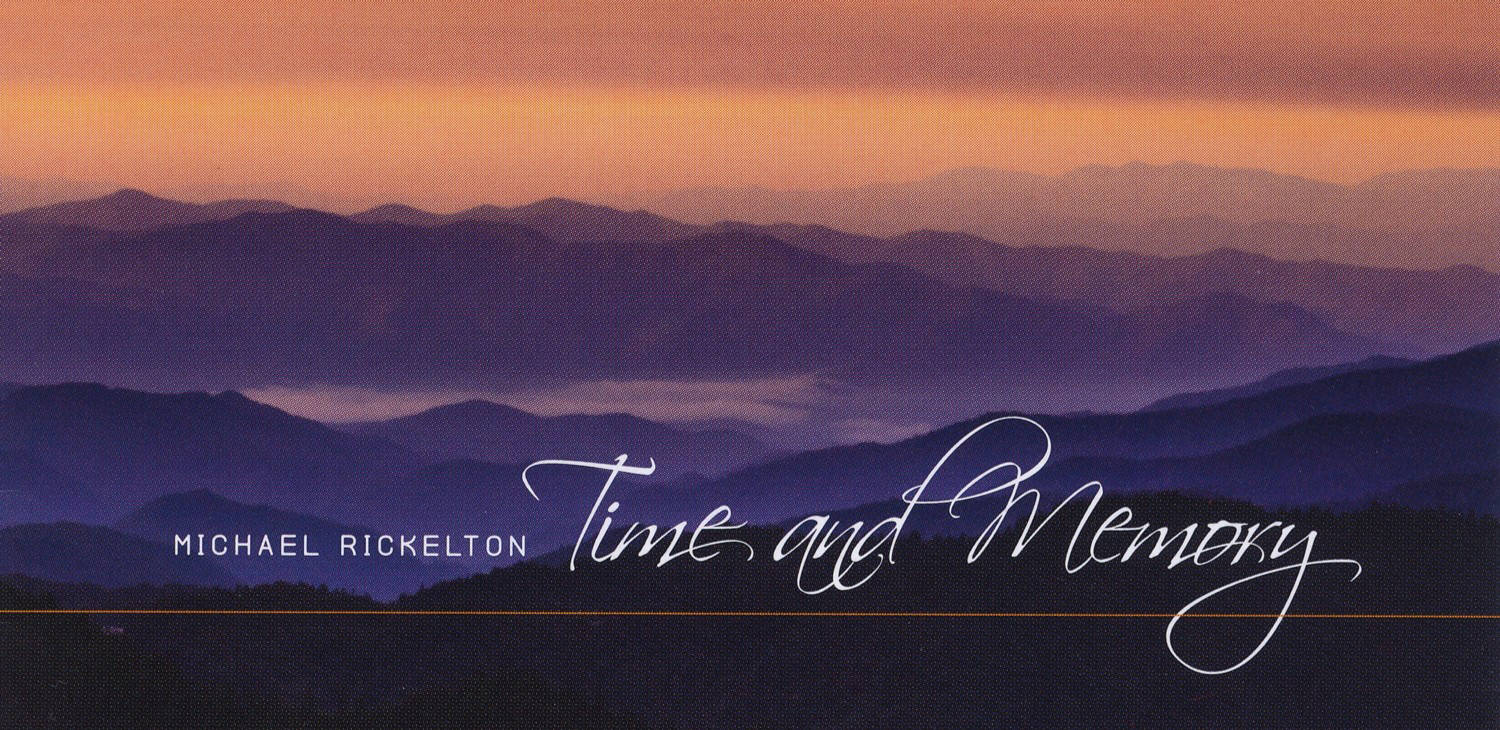


Assembled for this project are five extraordinary musicians who dedicate so much of their work to the performance of new music. Recording sessions took place in the Miriam A. Friedberg Concert Hall of The Peabody Institute in Baltimore, MD, and I am very excited to have had Ed Tetreault on board as the audio engineer for this project.
The recording is available on the Albany website, Amazon, iTunes, and other outlets. In the days leading up to the release, I posted a series of "Artist Profiles" on Facebook, highlighting each individual artist on the recording. You can read those here.
I invite you to explore the information below and I hope you'll consider adding this CD to your library.
Thank you to all those who supported this project:
Learn more about Time and Memory.
Learn more about Battle Songs.
Learn more about Impossible Season.
Time and Memory is a suite containing five pieces for voice and two for solo piano. These solo intermezzi are reflections on excerpts of William S. Trout's poems. Trout (1909-1980) lived most of his life amongst the rolling farmland of Lancaster County, and was a beloved English professor at Millersville University. He produced some 750 poems, but never sought publication. Trout's biographer notes the poems in Time and Memory "record specific times of day, the changing seasons and the physical changes in objects brought on by the passage of time."
Battle Songs recounts the events/effects of four major battles of pre-WWII wars—the battle of Concord (Revolutionary War), the battle of Buena Vista (Mexican-American War), the battle of Shiloh (Civil War), and the battle of Ypres (World War I). The battle of Concord is represented by Ralph Waldo Emerson’s "Concord Hymn" (1837), the battle of Buena Vista by Theodore O’Hara’s "The Bivouac of the Dead" (1847), the battle of Shiloh by Herman Melville’s "Shiloh: A Requiem" (1862), and the battle of Ypres by John McCrae’s "In Flanders Fields" (1915).
Texts by Dana Gioia. The four poems of Impossible Season offer earnest images of love and intimacy. Former Chairman of the NEA, Dana Gioia is an internationally acclaimed and award-winning poet. His poetry collection, Interrogations at Noon, won the 2002 American Book Award. In 2011, Gioia returned to California and assumed a distinguished faculty position at the University of Southern California.

Pianist Hsiao-Ying Lin holds the Doctor of Musical Arts and Master of Music degrees in piano performance from the Peabody Conservatory. Dr. Lin served as the Coordinator of the Peabody Conservatory’s accompanying program and as a graduate assistant in accompanying on full scholarship. She is currently on the faculty of the Peabody Preparatory, and serves as a collaborative pianist at the Peabody Conservatory, the Johns Hopkins Medical Institute Choir Society and University of Maryland, Baltimore County. Lin holds the position of Associate Music Director at Second Presbyterian Church of Baltimore. Dr. Lin performs internationally as a soloist, collaborative artist and chamber musician in venues such as Weill Recital Hall of Carnegie Hall, the Great Hall Series presented by the Chamber Music Society of Maryland, the Strathmore Mansion Concert series, the Steinway Series at Smithsonian American Art Museum, and the National Concert Hall in Taiwan. Lin has been a top-prize winner in numerous national and international competitions. Lin is the recipient of the Sidney Friedberg Prize in chamber music, as well as the Clara Arschfeld Award, Peabody Preparatory Awards, and Sarah Stulman Zierler Prize in accompanying.
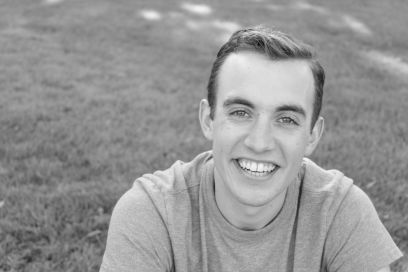
James Reese is an avid ensemble, chamber, and solo musician whose singing has been praised for its “intensity and sensitivity...spirituality and eloquence.” (Chestnut Hill Local)
James' 2018-19 season sees his Canadian and Austrian debuts with the Calgary Philharmonic Orchestra and Gallicantus, and his debuts with TENET Vocal Artists, Bourbon Baroque Orchestra, Delaware Choral Society, and the Sun Valley Symphony; as well as return performances with Philharmonia Baroque Orchestra, Lyric Fest, Philadelphia's Bach @ 7 series, and Bach Vespers @ Holy Trinity Lutheran NYC.
An advocate for new music, James is a founding member of Philadelphia vocal sextet Variant 6 (variantsix.com). He has premiered works by Ted Hearne, John Luther Adams, Judd Greenstein, Joel Puckett, Gabriel Jackson, and others. James sings frequently with leading American choruses, including The Crossing, Santa Fe Desert Chorale, Seraphic Fire, True Concord, and The Thirteen.
He has recorded on the ECM, Innova, and Albany labels; including The Crossing's release of Gavin Bryars' The Fifth Century, which won a Grammy for Best Choral Performance in 2018. He also sang on 2016 Grammy-Nominated Bonhoeffer, released by the Crossing.
James is a graduate of Northwestern University’s Bienen School of Music, where he studied with Kurt R. Hansen, Alan Darling, and Donald Nally. He is a recent graduate of Yale University's Institute of Sacred Music, where he studied with James Taylor as part of the Yale Voxtet.
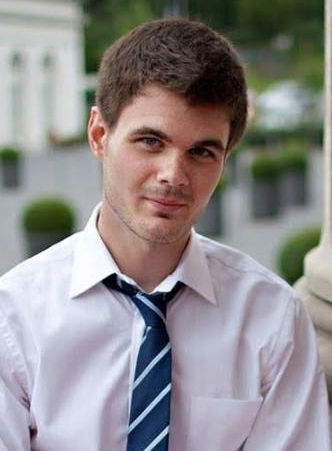
Bass-baritone Matt Sullivan is a highly sought after recitalist and concert singer throughout the East Coast. He has been described as “commanding” (Academy of Sacred Drama) and a “consistent standout” (Washington Life). His voice can be heard as the baritone soloist on Hyperion’s recording of the Brahms “Ein deutsches Requiem” under David Hill and on Albany’s “Time and Memory” singing Michael Rickelton’s “Battle Songs.” This season, Sullivan’s highlights will include a tour of New England with a program of Charles Ives, Hillary Purrington, and Michael Rickelton, as well as various performances with the Burlington Choral Society as Jesus in Bob Chilcott’s St. John Passion. In addition to his work as a solo artist, Sullivan has appeared with such ensembles as Bach Collegium Japan, Yale Voxtet, Yale Schola Cantorum, Yale Recital Chorus, St. Thomas’s Schola Antigua, Folger Consort, Mountainside Baroque, Friends of St. Bartholomew’s, Baltimore Baroque Band, Peabody Consort, Peabody Renaissance Ensemble, Bel Pianto, The Bridge Ensemble, and Opera Lafayette. Sullivan holds a Mus.M. from the Yale School of Music and a B.Mus. from the Peabody Conservatory, where he studied with the late John Shirley-Quirk. Mr. Sullivan is continuing his studies, currently researching the relationships of 19th and 20th century British composers of church music.
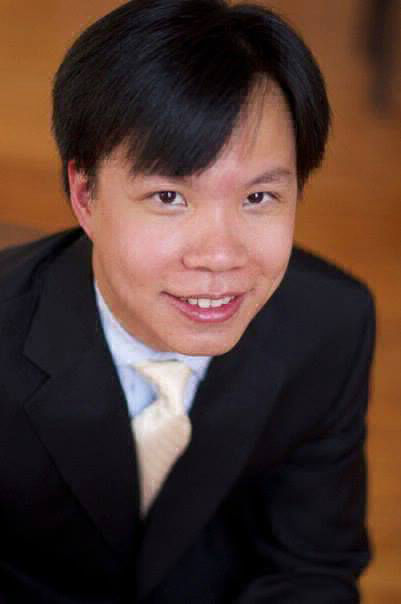
Based in Seattle, WA, award-winning pianist Ta Wei Tsai enjoys a multifaceted career as a performer and teacher. Ta Wei recently made his collaborative recital debut in New York City with soprano Melissa Wimbish, at the Weill Recital Hall of Carnegie Hall. Having performed in Asia, Europe, and North America, highlights of Ta Wei’s recent concert seasons include performances with the U.S. Army Field Band at the Kennedy Center, in Washington D.C., as well as performing works under the guidance of Pulitzer Prize-winning composers Caroline Shaw, and John Luther Adams.
A native of Taiwan, Ta Wei immigrated to the United States at the age of fifteen, and earned both his Bachelor and Master’s degrees in piano performance from the Peabody Institute of the Johns Hopkins University, in Baltimore, MD, where he served as a full-scholarship graduate assistant in accompanying. His mentors and teachers include Boris Slutsky, Marian Hahn, Sylvia Chambless, and A. Ramón Rivera.
In addition to his love for music, Ta Wei is an avid reader, baseball fan, as well as a certified personal trainer.
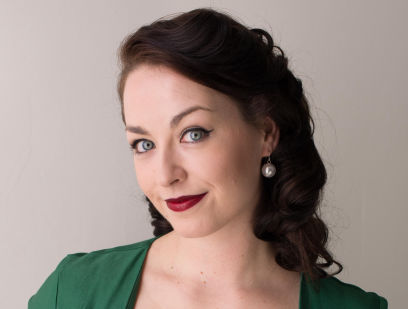
Soprano Molly Grace Young is equally at home in stage, concert and recital repertoire. She is quickly building a presence in the Baltimore/DC region where she performs as a soloist and chamber musician. Solo appearances include Mozart's Requiem, Vivaldi's Gloria, Charpentier's Messe de Minuit, Handel's Messiah, and Bernstein's Chichester Psalms. She can also be heard on the Grammy-nominated recording of Brahms' Ein deutsches Requiem produced by the Miami-based ensemble Seraphic Fire with the Professional Choral Institute. Ms. Young has performed with The Washington Consort, the Concert Artists of Baltimore, Peabody Opera Theatre and the American Opera Theatre. She holds degrees in voice and early music from Western Michigan University and the Peabody Institute of the Johns Hopkins University, where she studied with sopranos Phyllis Bryn-Julson and Ah Young Hong. Ms. Young sings for the professional choirs of the Basilica of the National Shrine of the Immaculate Conception and the National Cathedral in Washington, DC.

Ed Tetreault is currently the manager of the Recording Arts & Sciences department of the Peabody Conservatory of Music and has extensive experience in the field of audio recording. As the studio manager, Ed is in charge of keeping all of the school's technical spaces on the cutting edge of technology as well as providing recording students with hands-on instruction in all aspects of the recording environment. As a freelance engineer, he has recorded, mixed, or mastered releases on labels such as Naxos, Centaur, Vangaurd Classics, Onyx, and also several Grammy-nominated releases for Tonar Records.
American writer and philosopher Ralph Waldo Emerson was born in May 1803, in Boston, Massachusetts. After studying at Harvard and teaching for a while, Emerson was appointed minister of the Old Second Church in Boston. Overcome by the death of his nineteen-year-old wife of tuberculosis, Emerson resigned his position at Second Church in 1831.
The following year, Emerson traveled to Europe, meeting William Wordsworth, Samuel Taylor Coleridge, and Thomas Carlyle. Carlyle was famous for his anti-democratic views, and his belief in the power of the individual. Emerson's friendship with Carlyle was both lasting and significant; Carlyle's influence helped Emerson formulate his own transcendentalist philosophy.
Returning to New England, Emerson became known for challenging conventional thought. After he married his second wife in 1835, he settled in Concord, Massachusetts. Emerson soon became the preeminent champion for the American Transcendentalist movement, and known in literary circles as "The Sage of Concord." It is in Concord where Emerson spent his final years, succumbing to pneumonia in April 1882. Emerson's "Concord Hymn," celebrates "the shot heard round the world" of the Battle of Concord, during the American Revolution.
Source: Academy of American Poets - www.poets.org/poetsorg/poet/ralph-waldo-emerson
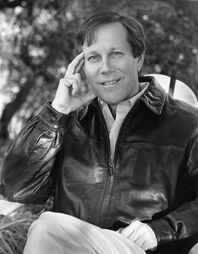
Current California Poet Laureate and former Chairman of the National Endowment for the Arts, Dana Gioia is an internationally acclaimed and award-winning poet. A native Californian of Italian and Mexican descent, Gioia (pronounced JOY-uh) received a B.A. and a M.B.A. from Stanford University and an M.A. in Comparative Literature from Harvard University. Gioia has published four full-length collections of poetry, as well as eight chapbooks. His poetry collection, Interrogations at Noon, won the 2002 American Book Award. An influential critic as well, Gioia's 1991 volume Can Poetry Matter?, which was a finalist for the National Book Critics Circle award, is credited with helping to revive the role of poetry in American public culture.
Gioia's many literary anthologies include Twentieth-Century American Poetry, 100 Great Poets of the English Language, The Longman Anthology of Short Fiction, and Literature: An Introduction to Fiction, Poetry, Drama, and Writing. His poems, translations, essays, and reviews have appeared in many magazines including The New Yorker, The Atlantic, The Washington Post Book World, The New York Times Book Review, Slate, and The Hudson Review. Gioia has written two opera libretti and is an active translator of poetry from Latin, Italian, and German.
As Chairman of the NEA, Gioia succeeded in garnering enthusiastic bi-partisan support in the United States Congress for the mission of the Arts Endowment, as well as in strengthening the national consensus in favor of public funding for the arts and arts education. (Business Week Magazine referred to him as "The Man Who Saved the NEA."). Gioia left his position as Chairman on January 22, 2009. In 2011 Gioia became the Judge Widney Professor of Poetry and Public Culture at the University of Southern California. Gioia has been the recipient of ten honorary degrees. He has won numerous awards, including the 2010 Laetare Medal from Notre Dame. He and his wife, Mary, have two sons.
© Dana Gioia, www.danagioia.com
Born on November 30, 1872, John McCrae began writing poetry while a student at the Guelph Collegiate Institute in Ontario, Canada. As a young boy, he was also interested in the military. He joined the Highfield Cadet Corps at 14 and at 17 enlisted in the Militia field battery commanded by his father. McCrae later attended the University of Toronto medical school. During this time, several poems and short stories were published in a variety of magazines.
He spent the summer of his third year as resident physician at the Garrett Hospital in Mount Airy outside Baltimore, a summer convalescent home for sick children. In 1899, he interned at the Johns Hopkins Hospital where his brother Thomas had worked as assistant resident since 1895.
When the South African War started in October 1899, McCrae felt it was his duty to fight. He was commissioned to lead an artillery battery from his home town. Following the war, McCrae held positions at various hospitals in Canada and England, and at the University of Vermont.
On August 4, 1914, Britain declared war on Germany. Citizens from all across Canada responded quickly. McCrae was appointed brigade-surgeon to the First Brigade of the Canadian Field Artillery with the rank of Major and second-in-command.
Before deployment, he wrote to a friend: It is a terrible state of affairs, and I am going because I think every bachelor, especially if he has experience of war, ought to go. I am really rather afraid, but more afraid to stay at home with my conscience.
In April 1915, John McCrae served in the trenches near Ypres, Belgium (in the area called Flanders). On April 22, the Germans used deadly chlorine gas against Allied troops. Despite the debilitating effects of the gas, Canadian troops held the line for another 16 days. In the trenches, John McCrae tended hundreds of wounded soldiers every day. He was surrounded by the dead and the dying.
The day before he wrote his famous poem, one of McCrae's closest friends was killed in the fighting and buried in a grave marked by a simple wooden cross. There, wild poppies began to bloom between the many crosses. Unable to help his friend or any of the others who had died, John McCrae gave them a voice through his poem "In Flanders Fields." It would be one of his final poems.
Source: Veterans Affairs Canada - www.veterans.gc.ca/eng/remembrance/history/first-world-war/mccrae
Herman Melville was born in 1819 into a once-prominent New York family. After the death of his father, Melville supported his family by working various jobs, from banking to teaching school. It was his adventures as a seaman in 1845 that inspired Melville to write. On one voyage, he was captured and held for several months by the Typees; an experience recounted in his Typee: A Peep at Polynesian Life. This was followed in 1851 by his seafaring masterpiece, Moby-Dick."
Relatively unsuccessful both critically and financially, Melville supported his family in the 1950s by farming and writing stories for magazines. By 1856 it was clear to Melville that his novel-writing career was finished. In 1857, after returning to New York still ignored by the literary public. Abandoning fiction and recognizing the realities of financial stability, he became a customs inspector, a job he held for twenty years. It was during this time that he began to write poetry.
Melville's first published book of poems was "Battle-Pieces and Aspects of the War" (1866). The Civil War made a deep impression on Melville. The volume, dedicated "To the Memory of the Three Hundred Thousand Who in the War for the Maintenance of the Union Fell Devotedly Under the Flag of Their Country" was deeply influenced by Melville's personal connections to Civil War events. Many of Melville's family members participated in various aspects of the war. Melville himself sought out experiences of his own. He observed the Senate debating secession during a visit to Washington D.C. in 1861, and made a trip to the front with his brother in 1864. Melville's "Battle-Pieces" is regarded by many critics as a work as ambitious and rich as any of his novels.
Herman Melville died of a heart attack on September 28, 1891, at the age of 72. Aside from a few devoted followers, he was almost completely forgotten at the time of his death. During the week of his death, The New York Times wrote: "There has died and been buried in this city...a man who is so little known, even by name...that only one newspaper contained an obituary account of him, and this was but of three or four lines." It wasn't until the 1920s that the literary public began to recognize Melville as one of America's greatest writers.
Source: Academy of American Poets - www.poets.org/poetsorg/poet/herman-melville
Theodore O'Hara (1820-1867) was a poet and an officer for the United States Army in the Mexican-American War, and a Confederate colonel in the American Civil War. He is best known for the poem "The Bivouac of the Dead," which is quoted in many cemeteries throughout the United States. He was born in Danville, Kentucky in 1820. Soon after, his family settled in Frankfort, Kentucky. He returned to Danville as a student at Centre College and then continueed his education at St. Joseph Academy in Bardstown, Kentucky. He later studied law with future U.S. Vice President and Confederate Secretary of War John C. Breckinridge, and he was admitted to the bar in 1842.
As the Mexican-American War was beginning, O'Hara signed up for the U.S. Army in June, 1846. He held the positions of captain and quartermaster of volunteers under General Gideon J. Pillow as they advanced upon Mexico City. For excellent conduct in the Battle of Contreras and the Battle of Churubusco, O'Hara was honored with the rank of brevet-major on August 20, 1847. He was honorably discharged on October 15, 1848. After the war ended, O'Hara returned to Washington, D.C. to continue his law practices.
While O'Hara was editor of the Mobile Register in 1858, "Bivouac" was published in that newspaper in what is considered the original form; two years later it appeared in the Louisville Courier with the explanatory introduction: "Lines written at the tomb of the Kentuckians who fell at Buena Vista, buried in the cemetery at Frankfort." O'Hara apparently changed words throughout the verse quite frequently, and different versions of it appeared at different times. He removed the names of specific locations, for instance, to elevate the work as a more pure elegy. He died on an Alabama plantation in June, 1867.
Source: U.S. Department of Veterans Affairs - National Cemetery Administration. For more information on O'Hara, visit www.cem.va.gov/history/bivouac.asp
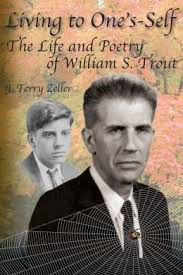
William S. Trout (1909-1980) was born on the edge of Gap, a village of about a thousand souls in the rolling farmland of eastern Lancaster County, Pennsylvania, where he lived for much of his life. His trips beyond the county line were few. He was the son of a carpenter and general handyman who died in the 1918-1919 influenza epidemic when Bill was ten years old. His mother taught in the local elementary school, supporting her four sons on a meager salary and the produce and livestock on a small plot of land. Trout attended the local public schools, and following graduation in 1928 went to Millersville State Normal School, where he earned a two-year rural teaching certificate in 1931 and a B.S. in Education in 1947. He began his teaching career in a rural one-room school and later taught both junior and senior high school before joining the English Department at Millersville State College in 1958, where he remained until retiring in 1968. He lived with and cared for his mother until her death at the age of 91 in 1967.
Trout was a very private and self-effacing man who wrote more than 750 poems but never sought to publish any of them. We may never know when he began writing poetry, though the first mention of it is in a letter to a friend in the mid-1940s. His intellectual interests were eclectic and included history, classical music and opera, visual art, and philosophy, as well as literature. He was steeped in the writings of Carl Jung, the "father" of analytical psychology, and interested in magic, the occult, and the Tarot. He was a keen observer of nature and a master of diction. The richness of his imagery makes him as much a poet of the eye as of the ear. He is a contemplative poet, one of solitude and reflection. Though he wrote verse in a variety of forms, Trout was essentially a lyric poet who numbered among his favorite poets Shakespeare, John Donne, Emily Dickinson, Thomas Hardy, A. E. Housman, E. A. Robinson, Walter de la Mare, and Edna St. Vincent Millay. His poems are about the natural world; about place and time; about family and friends, about people who doubt or suffer or are on the margins of conventional society; about illness, age, and death; and about exploring the landscapes of the mind.
© J. Terry Zeller Back to top